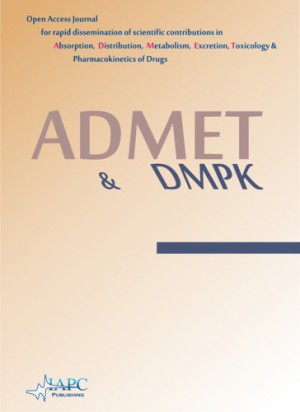
ADMET & DMPK
Yazarlar: Shahrzad Moattar Mohammadi, Ali Shayanfar, Shahram Emami, Abolghasem Jouyban
Konular:-
DOI:10.5599/admet.621
Anahtar Kelimeler:Antiepileptic drugs,Equilibrium solubility,Determination
Özet: Solubility is the maximum quantity of a drug dissolved in a given volume of solvent at a specific temperature. Several factors affect equilibrium solubility. Therefore, different solubility data have been reported for a solute in a certain solvent and temperature in the literature. These variations in solubility are one of the possible reasons for unsuccessful attempts of medicinal chemists for developing models as well as deviation of experimental works for solubility prediction in aqueous, non-aqueous and solvent mixtures. The present research aim is to investigate the effect of the amount of excess solid and the type of stirring on the solubility of drugs. The solubility of two antiepileptic drugs, namely sodium phenytoin and lamotrigine was determined in water, ethanol, and HCl 0.1 M at 37 °C. Different excess amounts of drugs were added to the constant volume of solvent. Additionally, different stirring methods such as magnetic stirrer and shake-flask and sedimentation time were investigated on the solubility values. Saturation solubility of drugs after dilution with water was measured using a spectrophotometer, and the concentration was calculated according to the calibration curve. Amount of excess solid, especially when the drug is in ionized form, and sedimentation time after 24 h have a significant effect on solubility values.